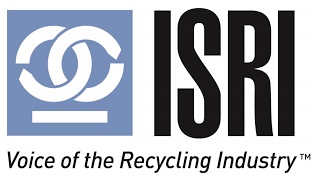 The Washington-based Institute of Scrap Recycling Industries (ISRI) says China has notified the World Trade Organization (WTO) of its intent to ban the import of mixed paper, “most scrap plastics” and metal slags and drosses by the end of 2017.
The Washington-based Institute of Scrap Recycling Industries (ISRI) says China has notified the World Trade Organization (WTO) of its intent to ban the import of mixed paper, “most scrap plastics” and metal slags and drosses by the end of 2017.
ISRI says the plastic scrap grades covered by the proposed ban include “polymers of ethylene, styrene, vinyl chloride and PET [polyethylene terephthalate].
Whether all grades classified in the United States as “mixed paper” would be banned is not entirely clear. A press release from the United Kingdom-based The Recycling Association describes the ban request as covering “unsorted waste paper,” in addition to “all plastics scrap, certain metal recycling residues, textiles and all unsorted waste or scrap.”
The news release also quotes Colin Clarke, who is with United Kingdom-based Mark Lyndon Paper Enterprises, as saying, “For the time being, we are still able to export OCC [old corrugated containers], mixed paper and other grades to China, as it is only unsorted waste paper imports that have been banned.”
Clarke continues, “The word from China is that we purchase a grade made to a global specification and not unsorted papers. Normal caveats apply when dealing with the Chinese authorities that if bad shipments are received, then mixed papers in particular could be at threat of a ban.”
ISRI’s 2016 specifications for exported paper grades include three in the mixed paper category. The hard mixed paper (HMP) grade specification refers to it being sorted and consisting of “less than 10 percent groundwood content.” The soft mixed paper grade spec also uses the word “sorted,” but says it is “not limited as to type of fiber content.” The residential mixed paper grade spec makes no mention of sorting, and says the grade consists of paper “not limited as to type of fiber content.”
ISRI says it has “already notified the Office of the United States Trade Representative and the U.S. Department of Commerce [of] the devastating impact such a ban will have on the global recycling industry, especially because ISRI has heard that China is considering additional notifications in the future on other scrap materials.”
Additionally, ISRI President Robin Wiener says upon hearing about the ban, says ISRI “immediately briefed U.S. officials in preparation for [the July 19, 2017] U.S.-China Comprehensive Economic Dialogue (CED) in Washington.”
More than $5.6 billion in scrap commodities were exported from the United States to China in 2016, says ISRI. “The trade in specification-grade commodities – metals, paper and plastics – between the United States and China is of critical importance to the health and success of the U.S.-based recycling industry. If implemented, a ban on scrap imports will result in the loss of tens of thousands of jobs and closure of many recycling businesses throughout the United States.”
An International Scrap Trade Database released by ISRI in April 2017 showed that China imported 29.2 million metric tons of recovered fiber in 2015, a figure that represented more than half of the world’s cross-border traded scrap paper.
The same database indicated China imported more than 7.3 million metric tons of plastic scrap in 2015, representing 48 percent of the globally traded total. That number likely declined in 2016 and has shrunk further in 2017, as Chinese customs and environmental agencies have been inspecting and closing down plastic recycling facilities.
ISRI adds, “In any given year, approximately one-third of the scrap recycled in the United States is prepared for shipment to the export market, and China is the recycling industry’s largest customer. This includes more than $1.9 billion in scrap paper (13.2 million tons) and $495 million in scrap plastics (or 1.42 million tons).
Ocean freight companies may also raise questions about the ban, as scrap materials represent a significant percentage of the “backhaul” journey via which 20- and 40-foot containers make a return trip from North America or Europe back to China.
Regarding the potential economic impact of the ban in the U.S., Wiener adds, “More than 155,000 direct jobs are supported by the U.S. industry’s export activities, earning an average wage of almost $76,000 and contributing more than $3 billion to federal, state, and local taxes. A ban on imports of scrap commodities into China would be catastrophic to the recycling industry.”
